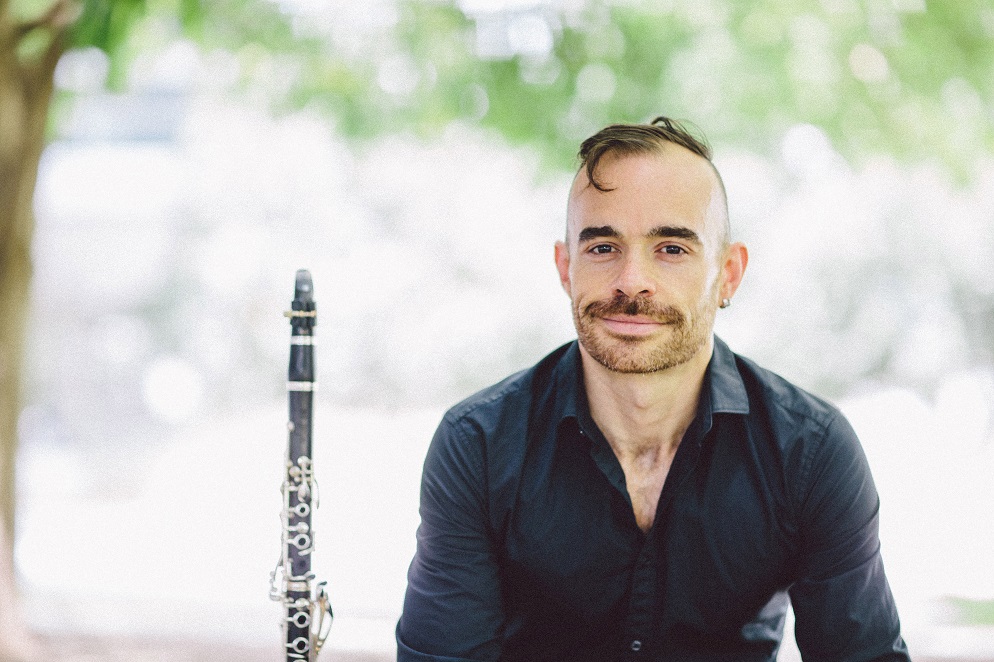The ethic and tenacity of the elite athlete are traits that are often paralleled (and frequently romanticised) in representations of the training undertaken by our Conservatorium students.
This virtuoso-performer training model, focusing on the gradual and systematic building of theoretical understanding and technique, has its roots in the demands of the European classical music industry of the 18th and 19th centuries.
Although there are certainly aspects of this model that maintain their applicability and effectiveness today, music conservatoria are increasingly challenging this model with pedagogical approaches attuned to social and economic transformations in music as an academic discipline, and as part of the domestic and international creative economies.

Image: Ashley William Smith, senior lecturer, UWA Conservatorium of Music
The pedagogical approach to the teaching, research and concert programming of the UWA Conservatorium is driven by our ambition to instil in our students a career mindset that is realistic, flexible and sustainable. Our key considerations include:
- the need for the course to better reflect the industry pattern of Australian musicians as participants across a range of portfolios within a diverse creative sector;
- the need to assist students with the transition to industry; and
- the need for the curricula to reflect widely held contemporary values around diversity, equity and inclusion through the dismantling, restructuring and reframing of the theoretical and historical approaches of the artform.
With fulltime performing careers representing an increasingly diminishing part of the workforce, today’s music graduates work across diverse industry sectors. The effects of COVID-19 on the Australian music industry highlighted the resilience of musicians with a diverse skillset and agility to work across a portfolio of different types of music-related work. Similar to a share portfolio, the portfolio career allows a balance of higher and lower-risk options — meeting artistic needs through performing, while simultaneously engaging in other types of work including music education, arts management and arts communications.
Conservatorium units each emphasise that soft skills in communication, leadership, problem-solving and personal administration are as important as specialised creative and technical skills development. Students view these soft skills as highly transferrable across and beyond the creative and cultural industries.
Assisting students with the transition to industry, an integral part of the Conservatorium’s practical streams, sees students connect with future colleagues and employers in professional projects with major industry partners. In 2022, Conservatorium students have had the opportunity of sitting side-by-side with professional performers, conductors and directors in performances with West Australian Opera and West Australian Symphony Orchestra. Conservatorium students also regularly gain experience assisting in the curation of events within the Conservatorium’s annual concert series, and performing alongside the Conservatorium’s resident ensemble, The Irwin Street Collective.
Decentring the ‘classical’ bias
The Conservatorium’s program constantly probes implicit biases and prejudices embedded in the traditional teaching of academic music studies, most notably in the music theory and history sequences. It was our aim to move beyond representing diversification through the
inclusion of token repertoire and alternate narratives in our teaching. Rather than enforcing a hidden curriculum, we aim to engage in a more radical strategy of decentring the students’ understanding of the musical canon. Our musicology units see the rejection of the traditional survey approach in favour of one where art music, popular music and world music are nested together in modules that explore broader topics and concepts. A discussion on revolutions in music in today’s classroom might place Ludwig van Beethoven alongside Hildegarde von Bingen and David Bowie.
I am confident that the UWA Conservatorium provides the hard and soft skills, experiences and industry connections that will allow our students to be leading creative thinkers in diverse careers across the arts sector.
By Ashley William Smith, senior lecturer, UWA Conservatorium of Music
